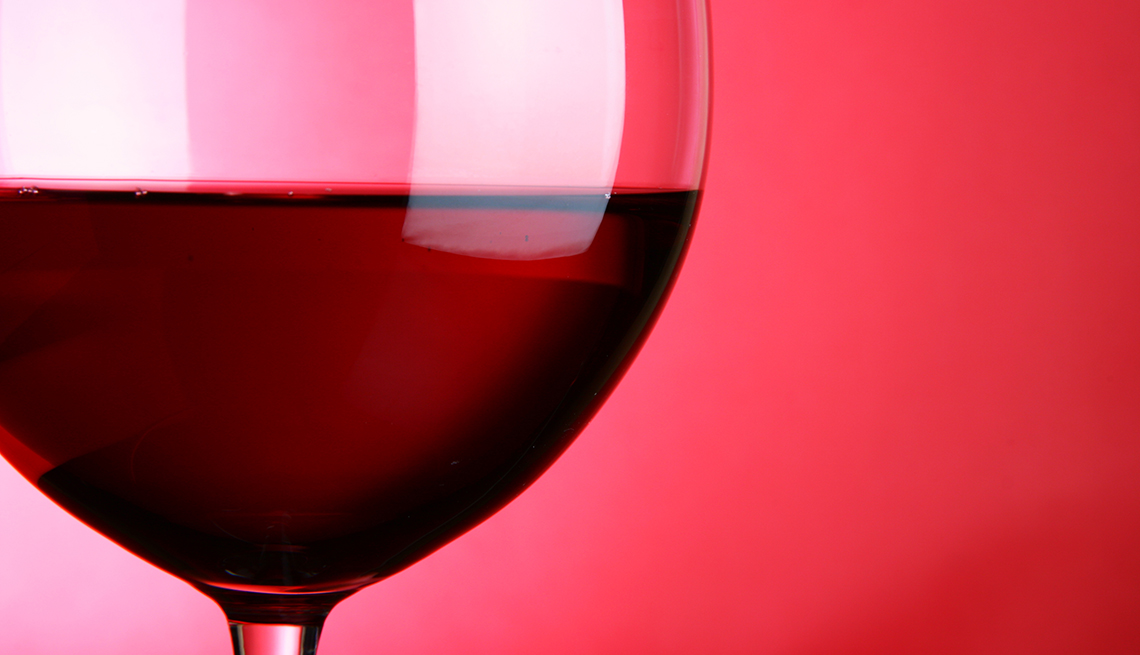AARP Hearing Center
Donna Fuscaldo,
If you’re looking for ways to consume less alcohol, then consider drinking from a smaller glass. A new study, published in the scientific journal Addiction, found that people in the United Kingdom consumed 6.5 percent less wine when they sipped from a 290-milliliter (about 10 ounces) cup, rather than a 350-milliliter (about 12 ounces) one.
Wine is the alcoholic beverage of choice for adults in Europe, with many drinking at home, instead of in bars and restaurants. At the same time, the size of wineglasses has increased over the past 30 years. That’s created a situation where people are drinking more. Alcohol consumption is linked to premature death and disease. Reducing consumption at the population level could decrease the risk of several diseases, including cancer, type 2 diabetes and heart disease.
Because smaller portions and packages have decreased the consumption of food and nonalcoholic beverages, researchers set out to see if the same could apply to wine if it were sold in smaller bottles and consumed in smaller glasses.
260 households recruited for drinking study
To ascertain the effects of smaller glasses, researchers recruited 260 UK households that consume two 75cl bottles (about 25 ounces) of wine per week. During two 14-day periods, the households were asked to buy a predetermined amount of wine in either 75cl or 37.5cl (about 12.7 ounces) bottles. They also randomly received 290ml or 350ml glasses to drink from. The volume of wine consumed at the end of each period was measured using images of the bottles and weighed on scales the researchers provided. The scientists found the following:
- Households consumed about 3.6 percent less wine when drinking from a smaller bottle.
- Households consumed about 6.5 percent less wine when drinking from a smaller glass.
- Households that had both smaller wine bottles and glasses consumed about 6.5 percent less wine.
“If the effects of wine glass size on consumption are proved reliable with effects sustained over time, reducing the size of wine glasses used in homes could contribute to policies for reducing alcohol consumption,” the researchers wrote in the report. “These could include pricing glasses according to capacity, which could increase the demand for smaller glasses. Regulating glass size — alongside serving size — in licensed premises is also a possibility, which could shift social norms for what constitutes an acceptable size of glass for use outside as well as at home.”
Donna Fuscaldo is a contributing writer and editor focusing on personal finance and health. She has spent over two decades writing and covering news for several national publications and websites, including The Wall Street Journal, Forbes, Investopedia and HerMoney.
Donna Fuscaldo is a contributing writer and editor focusing on personal finance and health. She has spent over two decades writing and covering news for several national publications and websites, including The Wall Street Journal, Forbes, Investopedia and HerMoney.
Donna Fuscaldo is a contributing writer and editor focusing on personal finance and health. She has spent over two decades writing and covering news for several national publications including The Wall Street Journal, Forbes, Investopedia and HerMoney.
MORE FROM AARP







































































